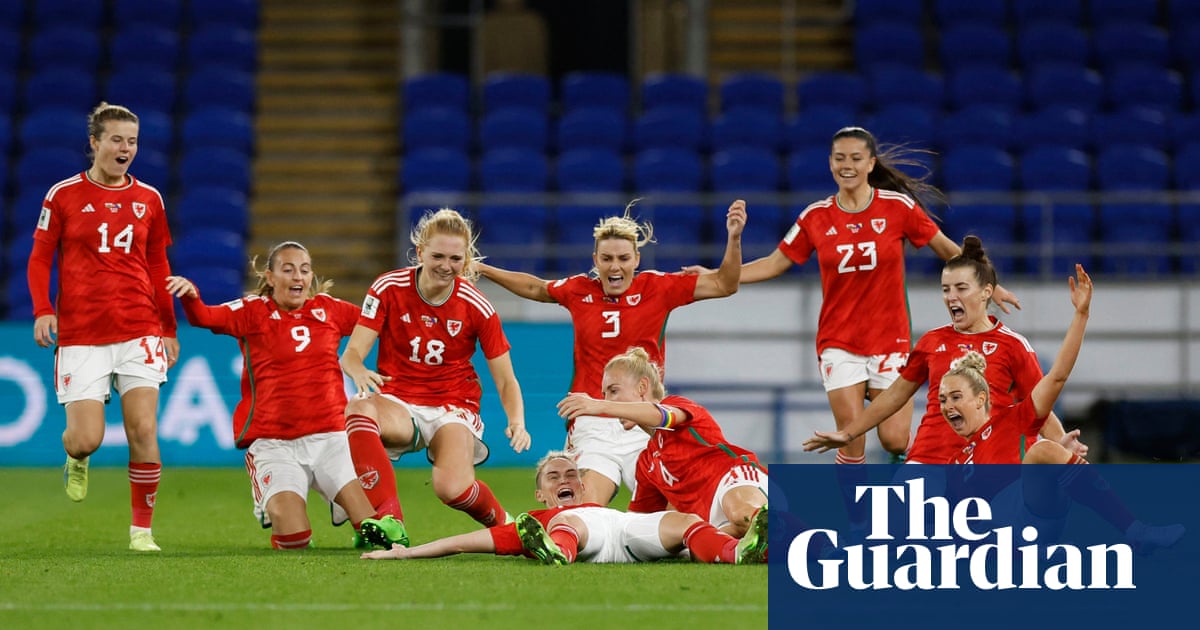
Scotland’s female international footballers have launched legal action against the Scottish Football Association over equal pay and treatment claims, with the captain, Rachel Corsie, the lead claimant in the employment tribunal case.
The players will demand a contract stipulating equal pay and treatment compared to their male counterparts on issues such as training facilities, hotels, travel, kit plus medical and nutritional resources. “This is about all professional footballers being treated equally,” the Aston Villa defender Corsie said in a statement.
“After years of iniquity, disrespect, and in some cases abuse, we have a historic opportunity to advance equal pay and to promote equality for women and girls in football. This campaign is about parity, and we’ll be seeking to engage with the Scottish Football Association, the fans, and everyone in Scotland’s football community to deliver this long overdue change.”
The action will be fully funded by PFA Scotland and is likely to cite equal pay arrangements in the national teams of the United States, Norway, Canada and Sweden. The American women’s team reached a reported £17.7m settlement with US Soccer earlier this year following a six-year legal fight. The Republic of Ireland captains, Séamus Coleman and Katie McCabe, agreed an equal match fees deal in August last year following talks with the Football Association of Ireland.
Scotland’s men waived any match fees for a long spell until qualifying for the Euro 2020 finals, with the idea being they should be rewarded for success. The women’s team qualified for the European Championship finals in 2017 and the World Cup in 2019 but have missed out in their two most recent qualifying campaigns.
The high-profile players Caroline Weir and Erin Cuthbert have added their voices to the calls for change. The Real Madrid midfielder Weir said: “For so many years we’ve felt an afterthought, and whilst we have seen growth it’s come as a result of driving our own change. Payments from sponsorship deals overwhelmingly go to the men’s game, and to male players.
“In our current society, this is one example of the outdated prejudice towards one group of players. The national team should be one unified organisation that backs both the SMNT and SWNT. It should be an elite and high-performing environment that ensures both teams can build success. If shared out equally, there would be a dramatic increase in funding for women’s and girls’ football at all levels that would be transformative.”
Chelsea’s Cuthbert added: “This campaign must be the start of an irreversible turning point to forever change our national game, and the way women players are treated. It’s about advancing and achieving equality in Scottish football.”
In a lengthy response, the SFA insisted it shared the view that equality should be at the heart of the development of the game.
“It is why we have been in ongoing dialogue with the women’s national team, their lawyers, advisors and union representatives to continue to support the exponential growth of the women’s game and inspire future generations,” a statement added.
The SFA pointed out that no national team player was paid to play for Scotland, and that both the men’s and women’s squads receive a “per diem rate for their time with the national team, which has been exactly the same since 2017”.
“While other associations such as those named in the SWNT statement may choose to pay appearance fees, our men’s and women’s national team players are incentivised to qualify for major tournaments, from which the teams are paid the same percentage of prize money from the tournament organiser,” the statement added.
“The squads are further remunerated in lieu of contractual media and/or promotional appearances for our national teams’ sponsors. Again, the Scottish FA has ensured that men’s and women’s players are paid the same amount for appearances involving designated official national teams’ sponsors.
“As a result of ongoing dialogue, in September the Scottish FA sent a draft agreement to the SWNT’s advisers, which confirmed that all financial arrangements for the SWNT and SMNT would be the same … but have to date received no substantive response.”
The SFA added that no issues had been raised over in-camp provision in recent months and claimed it continues to invest more in the development of girls’ and women’s football than the commercial income received.












